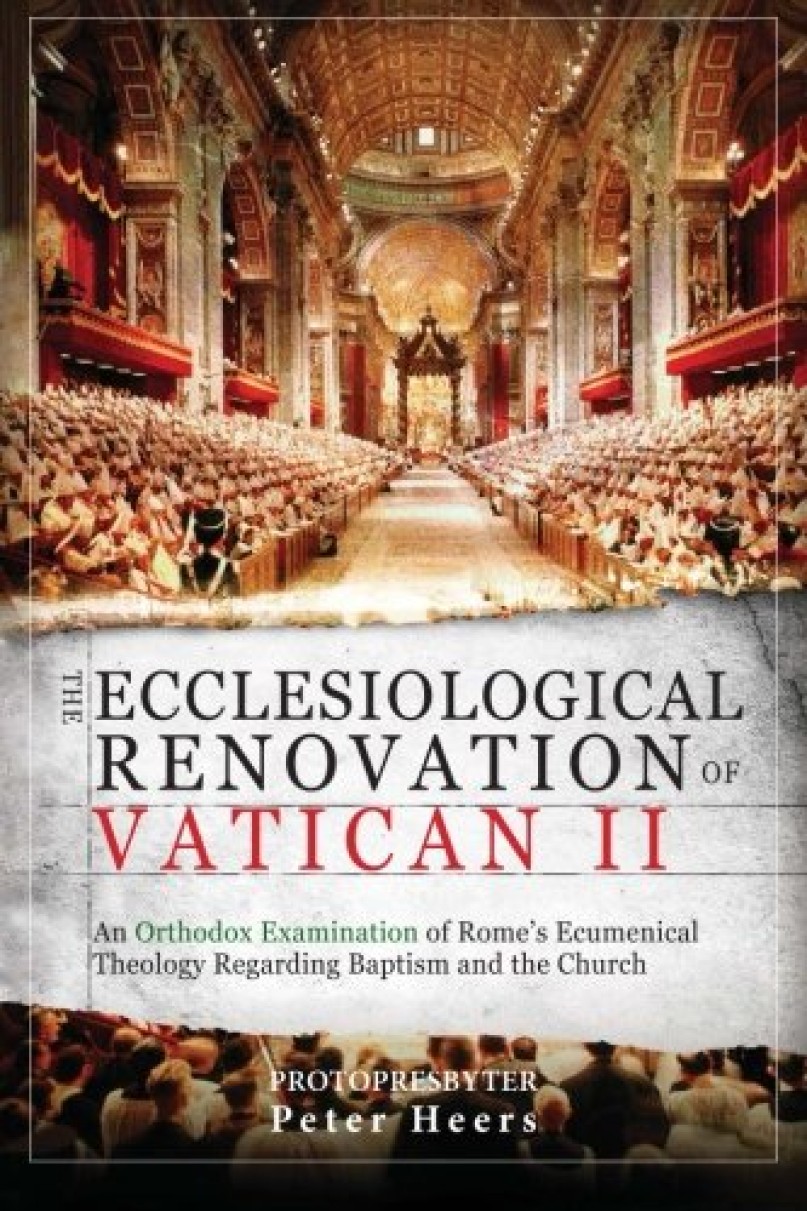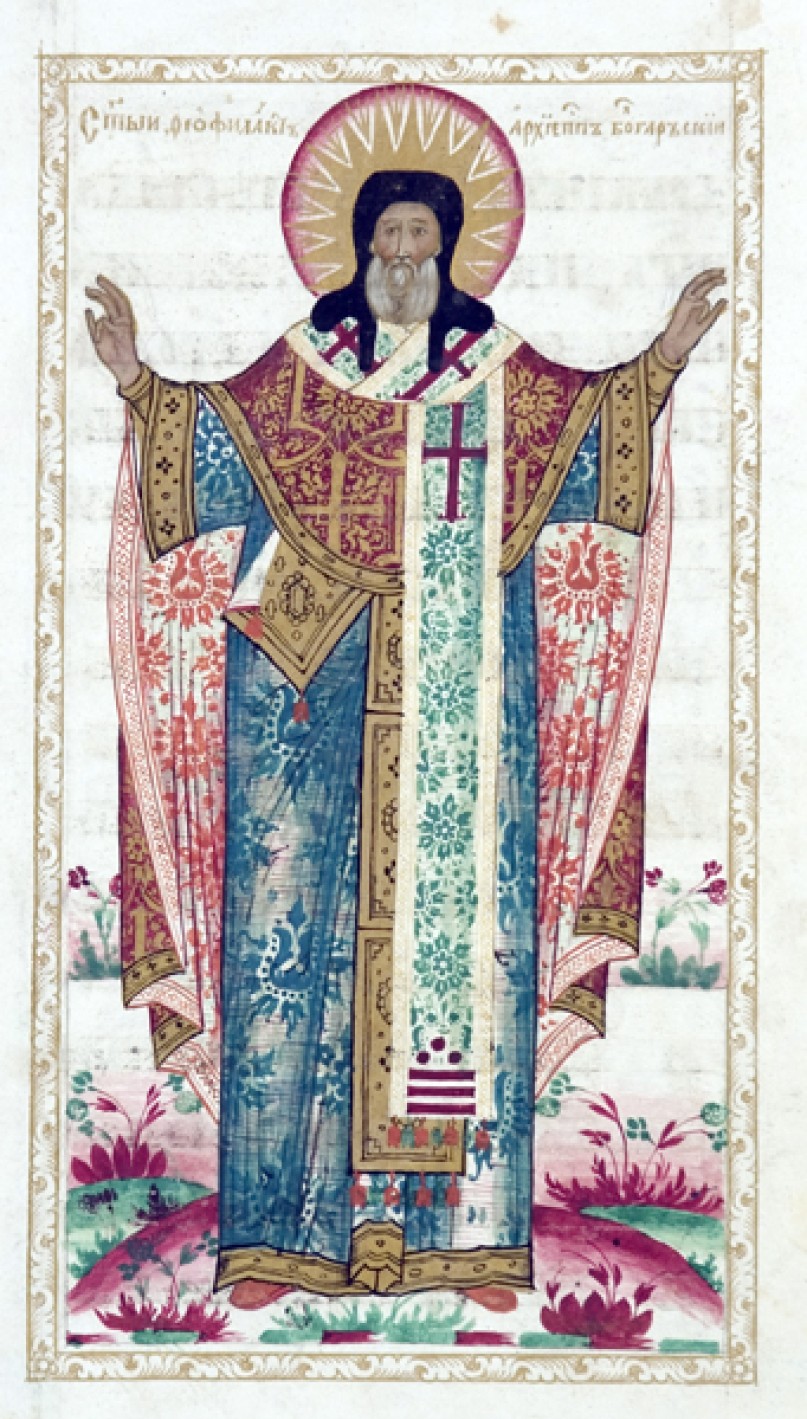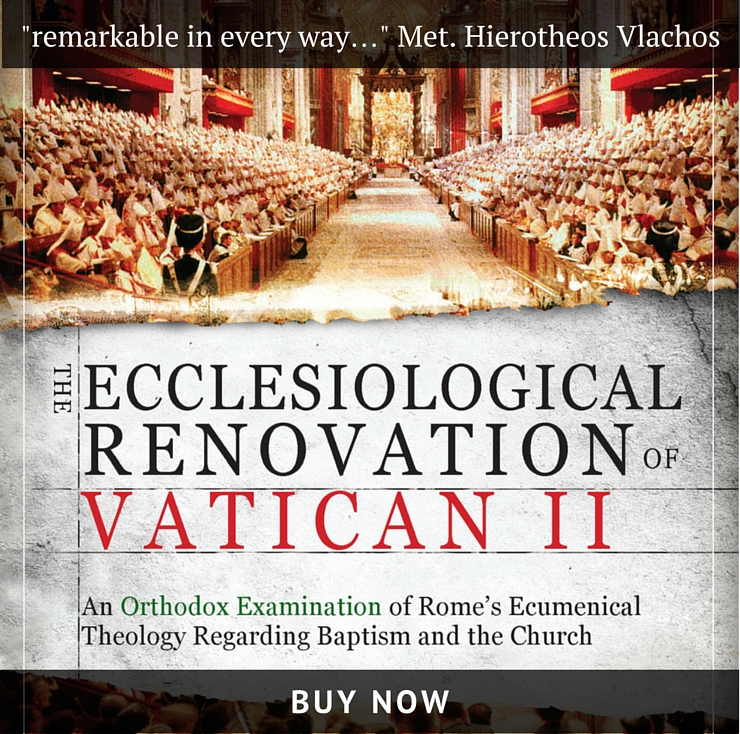In agreement with the Patristic Patrum, St. Theophylact of Bulgaria offers us a brightly shinning spiritual gem in his sacred Commentary on the Gospel of St. John that easily refutes the modern-day innovative heresy that claims the Heterodox are members of the One Holy Catholic Apostolic Church and therefore can commune of the Divine and Life-giving Eucharist in the Orthodox Church.
St. Theophylact reminds us that only those initiated into the one undivided Body of Christ can commune. Before anyone think himself wiser than the Saints, who were made wise by the Holy Spirit, and try to lay claim that the Heterodox are somehow truly baptized and part of the Church because they were baptized and believe in the Holy Trinity like we Orthodox, let them remember the words of St. Athanasius the Great [1] and St. John Chrysostom [2] that also refutes such a ridiculous un-Orthodox idea. And as a final postscript, lest any Orthodox cleric choose to ignore the teachings of the Holy Orthodox Church and still bestow the Holy Things to the uninitiated, let them heed the warning of the Apostolic Constitutions [3] and St. John of Damascus [4].
But let those who have ears to hear now turn to the wisdom of God as found in His Saint, Theophylact of Bulgaria. Wisdom! Let us be attentive!
“Beyond these original meanings, Pasha represents our crossing over from unbelief to belief. Pentecost celebrates our entrance into another promised land, the Church, where we taste the Divine Bread by partaking of the Holy Mysteries. We do not eat the Bread at the moment we pass over from unbelief to belief, but we must first be baptized. Made worthy by baptism to stand in church [the Temple] with the initiated, we may then commune.”
+ St. Theophylact of Bulgaria, Explanation of the Holy Gospel According to John, Chapter 7:1-5
------------------------------------
[1] “For not he who simply says, 'O Lord,' gives Baptism; but he who with the Name has also the right Faith. On this account therefore our Savior also did not simply command to baptize, but first says, 'Teach;' then thus: 'Baptize into the Name of Father, and Son, and Holy Ghost;' that the right Faith might follow upon learning, and together with faith might come the consecration of Baptism… There are many other heresies too, which use the words only, but not in a right sense, as I have said, nor with sound faith, and in consequence the water which they administer is unprofitable...” (- See St. Athanasius the Great, “Discourse II Against the Arians”).
[2] “Shall it be said, ‘Their faith is the same, they are orthodox as well as we’? If so, why then are they not with us? There is one Lord, one Faith, one Baptism. If their cause is right, then is ours wrong; if ours is right, then theirs is wrong. “Children,” says he, “tossed to and fro, and carried about with every wind.” Tell me, do you think this is enough, to say that they are orthodox? Is then the ordination of clergy past and done away? And what is the advantage of other things, if this be not strictly observed? For as we must needs contend for the faith; so must we for this also. For if it is lawful for any one, according to the phrase of them of old, to fill his hands, and to become a priest, let all approach to minister. In vain has this altar been raised, in vain the fullness of the Church, in vain the number of the priests. Let us take them away and destroy them. God forbid! you will say. You are doing these things, and do ye say, “God forbid”? How say ye, “God forbid,” when the very things are taking place? I speak and testify, not looking to my own interest, but to your salvation. But if any one be indifferent, he must see to it himself: if these things are a care to no one else, yet are they a care to me. I planted, says he, Apollos watered, but God gave the increase. 1 Corinthians 3:6 How shall we bear the ridicule of the Greeks? For if they reproach us on account of our heresies, what will they not say of these things? If they have the same doctrines, if the same mysteries, wherefore does a ruler in one Church invade another? See ye, say they, how all things among the Christians are full of vainglory? And there is an ambition among them, and hypocrisy. Strip them, say they, of their numbers, and they are nothing. Cut out the disease, the corrupt multitude. Would you have me tell what they say of our city, how they accuse us on the score of our easy compliances? Any one, say they, that chooses may find followers, and would never be at a loss for them. Oh, what a sneer is that, what a disgrace are these things!... Therefore I assert and protest, that to make a schism in the Church is no less an evil than to fall into heresy. Tell me, suppose a subject of some king, though he did not join himself to another king, nor give himself to any other, yet should take and keep hold of his king's royal purple, and should tear it all from its clasp, and rend it into many shreds; would he suffer less punishment than those who join themselves to the service of another? And what, if withal he were to seize the king himself by the throat and slay him, and tear his body limb from limb, what punishment could he undergo, that should be equal to his deserts? Now if in doing this toward a king, his fellow-servant, he would be committing an act too great for any punishment to reach; of what hell shall not he be worthy who slays Christ, and plucks Him limb from limb? Of that one which is threatened? No, I think not, but of another far more dreadful” (- See St. John Chrysostom, “Homily 11 on Ephesians”).
[3] “If an uninitiate person [a non-Orthodox] partakes of Holy Communion, that person eats eternal judgment unto himself” (- See Apostolic Constitutions, Book 7, Chapter 35).
[4] “Participation is spoken of; for through it we partake of the divinity of Jesus. Communion, too, is spoken of, and it is an actual communion, because through it we have communion with Christ and share in His flesh and His divinity: yea, we have communion and are united with one another through it. For since we partake of one bread, we all become one body of Christ and one blood, and members one of another, being of one body with Christ. With all our strength, therefore, let us beware lest we receive communion from or grant it to heretics; Give not that which is holy unto the dogs, says the Lord, neither cast ye your pearls before swine Matthew 7:6, lest we become partakers in their dishonor and condemnation. For if union is in truth with Christ and with one another, we are assuredly voluntarily united also with all those who partake with us. For this union is effected voluntarily and not against our inclination. For we are all one body because we partake of the one bread, as the divine Apostle says 1 Corinthians 10:17" (- See St. John of Damascus, Exposition of the Orthodox Faith, Book 4, Chapter 13).
---------------------
Post made by Maximos
"Made worthy by baptism to stand in church [the Temple] with the initiated, we may then commune."




Please be kind, lest your comment go the way of Babylon.